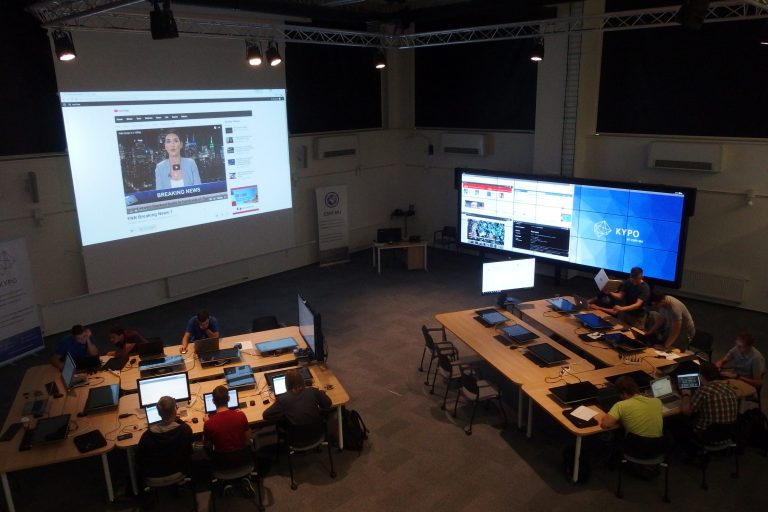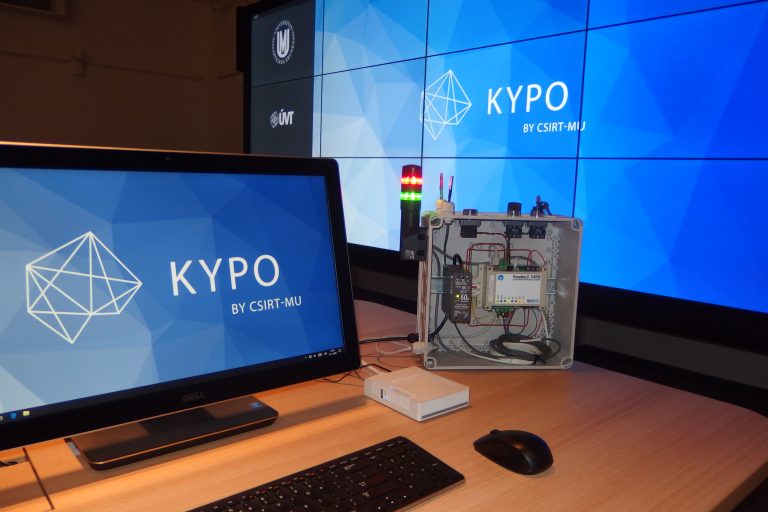KYPO Cyber Range Platform
Masaryk University has been developing the KYPO Cyber Range platform since 2013. The platform builds on several years of experience using cyber ranges in education, training, and cyber defense exercises, including Czech technical cybersecurity exercises – the Cyber Czech, which were organized in cooperation with the Czech National Cyber and Information Security Agency (NCISA). The platform has already been used for teaching students in several courses at Masaryk University and for the training of cybersecurity professionals from the energy sector.
With practical applications in mind, we emphasized repeatability, scalability, automation, and interoperability to minimize human tasks and make cyber trainings affordable and cost-efficient. We also focused on remote access to the cyber range platform, so it is possible to complete the training from anywhere in the world.

Masaryk University
Brno, Czech Republic
Provided Services
Education of Students
Training of Professionals
Cyber Defense Exercises
Cybersecurity Research
Testing of
HW/SW
KYPO Cyber Range Platform is strongly user-driven, and for that reason, the platform focused on providing hands-on solutions for the education of students and training of cybersecurity professionals. These use cases were proven by university classes and training runs for energy industry companies. Support of cyber defense exercises can be introduced in the future, if users will provide enough interest in the topic.


Cooperation models
Use our open-source platform
We have released KYPO CRP as open-source software. Every organization will be able to deploy a cyber range for teaching or training cybersecurity professionals for free. The platform is fully open under the MIT license, which means that organizations can customize the cyber range platform or extend it for their needs
Be part of the community
Open-source software is as strong as its community. Everyone can customize the KYPO cyber range platform, but let’s stay coordinated, and everyone will be able to benefit from the improvements we make. Every user of the platform can also create content and share it freely with others. This content will enable all of us to provide better cybersecurity education for everybody.
If you want to invest your time to improve the platform or create the content for KYPO CRP, please contact us.
Train your cybersecurity skills with us
Training of cybersecurity professionals is a crucial task, and we are aware of that. We are finishing a couple of new courses using modern approaches to education, hands-on training, and fully remote access.
More information about these new courses will be available in Q1/2021.
Technology
Hardware-based
Virtualized
Cloud-based (private cloud)
Cloud-based (public cloud)
KYPO Cyber Range Platform is based on modern approaches such as containers, infrastructure as code, microservices, and open-source software, including cloud provider technology – OpenStack.
The modern, cloud-based approach brings one more important advantage. It is possible to start with only one server for testing and then grow up to tens or hundreds of servers. You can also utilize your hardware more effectively, and the cyber range platform can host as many instances of the different types of content as the cloud environment can handle.
The open approach for the content is used to encourage creating a community of trainers and supporting the sharing of training building blocks. For that reason, virtual machines, networks, and trainings are entirely defined in human-readable data-serialization languages or use open-source software to build virtual machines and describing machine content.
Content Management and Development
It is quite easy to create, edit, and share content with the KYPO Cyber Range Platform thanks to standard tools like Ansible and Packer. Data are stored in open human-readable and serializable file formats like JSON and YAML. Import and export of training definitions can be done with just in few clicks. Furthermore, all data can be versioned and stored in a Git repository.
